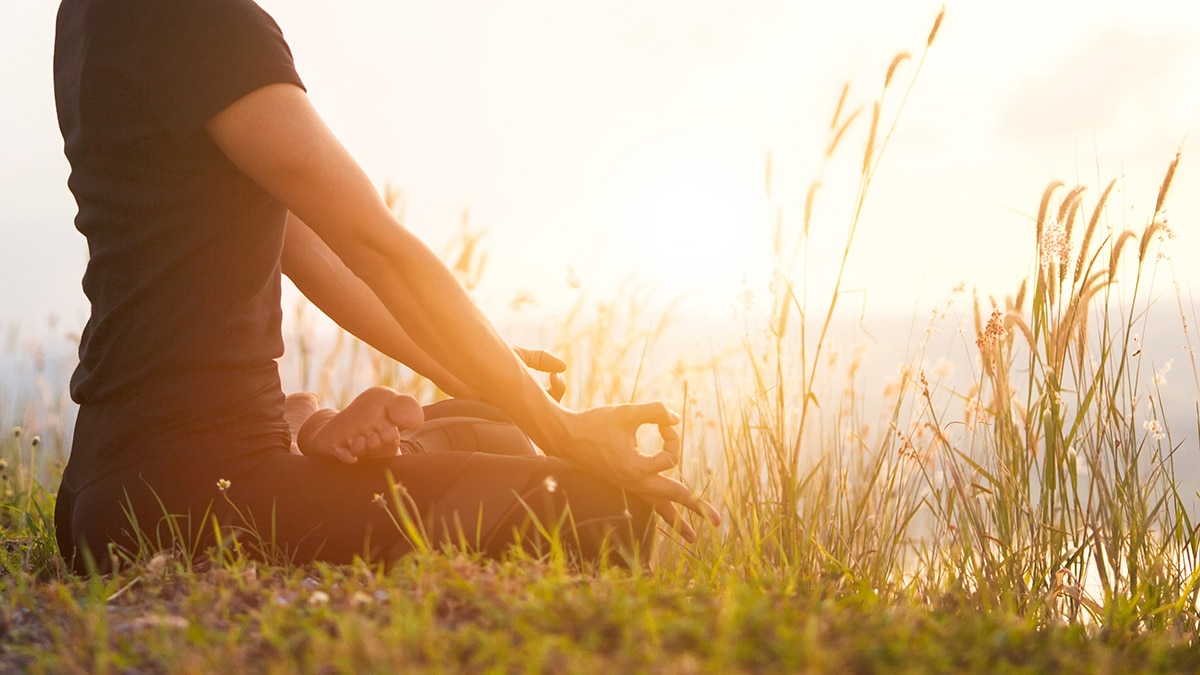Let’s face it – the past few years have been incredibly stressful. Our bodies have survived and are still surviving a pandemic. If you are experiencing stress due to the COVID-19 pandemic, recent world events, or personal circumstances, you are certainly not alone. It is completely natural to feel stress, worry, and/or grief throughout this time.
The goal isn’t to eliminate stress (that would be impossible!) but rather learn how to better cope with stress, build resilience, and fill your emotional tank. Your emotional tank is like the gas tank in a car. When your emotional tank is empty you may feel tired, irritable, tense, depressed, or perhaps the little things bring you to the brink of tears, like hitting every red light on the way to work.
When your emotional tank is full, you may feel emotionally balanced, optimistic, and able to cope with life’s challenges. Each of us has a unique tank, different in size and shape, with the ability to hold more or less fuel than others. And much like a car, our bodies and emotional well-being cannot run on empty.
If our emotional tank is drained by stress, how can we fill it up again?
Cultivate an Attitude of Gratitude
A key aspect of resilience, or the ability to adapt in times of stress, is gratitude. Expressing daily gratitude has been shown to reduce stress and measurably improve emotional well-being (thus, filling your emotional tank). Further, studies have shown that grateful people often have lower blood pressure, less chronic pain, increased energy, higher self-esteem, and even longer lives (1). While there is value in reflecting on gratitude, it is far more than just saying, “thank you.” The effectiveness of gratitude is increased when you write it down (2).
For one week, try the following practice each morning or evening: Using an old-fashioned notebook or hi-tech phone app, try writing down three things that you are thankful for. The fun part – try to not to repeat any of the gratitude reflections!
Practice Mindfulness
Mindfulness is the ability to be present and to be aware of where you are and what you are doing – without judgment. Mindfulness exercises include mindful breathing, observation, listening, or appreciation and can be done in a seated position, while standing or while walking.
In this moment, look around you and become aware of your environment. Pick out three objects that you do not usually notice. Make note of the texture of each object. Is it rough, smooth, soft, hard, etc.? Now, bring attention to the sounds or smells around you. Listen for and notice sounds or smells that you normally filter out.
Move for Stress Relief
Any form of physical activity or movement can be a stress reliever – the most important thing is to pick an activity that you enjoy! Physical activity reduces stress hormones, such as adrenaline and cortisol, and stimulates the production of endorphins. Endorphins are “feel good” neurotransmitters in the brain that are responsible for feelings of pleasure (3).
Movement can include anything from gardening, dancing, walking the dog, yoga, to going on a run with a friend. Mind-body activities like yoga combine physical movement, mindful breathing, and meditation to reduce stress and anxiety. If you are interested in trying yoga, the Paul H. Broyhill Wellness Center offers a variety of yoga classes ranging from gentle/beginner to advanced yoga.
If you are feeling too stressed to exercise, or you don’t feel like moving your body, try the five-minute rule. Set a timer and move your body for only five minutes. You could go on a five-minute walk outside, do jumping jacks in your living room, hop on a bike, etc. See how you feel after five minutes, chances are, you will want to keep going! And if not, take the day to rest and try again tomorrow.
Stress will always be a part of life – and it may even bring your tank close to ‘empty.’ Resilience and coping skills give you the ability to fuel back up. Be gentle, be patient, and be kind to yourself. You’ve got this.
 Author: Madi Zaidel, CHES®
Author: Madi Zaidel, CHES®
Madi is a Certified Health Education Specialist and is currently the Business Development Manager for UNC Health Appalachian. Madi holds a degree in Public Health and a master’s degree in Public Health Nutrition. Madi is passionate about health promotion, health education, and holistic well-being, and is an advocate for health at every size (HAES).
ARHS Health Outreach programs use evidence-based initiatives to promote healthy behaviors, prevent disease, and encourage disease management practices. For more information or to request a program, contact Madi at (828) 268-8960.
References:
1. Sansone, R. A., & Sansone, L. A. (2010). Gratitude and well being: the benefits of appreciation. Psychiatry (Edgmont (Pa. : Township)), 7(11), 18–22.
2. Cunha, L. F., Pellanda, L. C., & Reppold, C. T. (2019). Positive psychology and gratitude interventions: A randomized clinical trial. Frontiers in Psychology, 10, 584. https://doi.org/10.3389/fpsyg.2019.00584
3. Nagata, S., McCormick, B. P., & Austin, D. R. (2020). Physical activity as treatment for depression in recreation therapy. Therapeutic Recreation Journal, 54(1), 77-91. https://doi.org/10.18666/TRJ-2020-V54-I1-9745
Share this page

